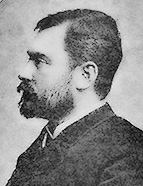

2.1879–1885: This phase saw the publication of Biblioteca das Ciências Sociais [Library of Social Sciences], a diverse collection that simultaneously reflected Martins's self-education and presented the results of this autodidacticism to the public. This public dissemination was often years in the making, as in the cases of História da Civilização Ibérica [History of Iberian Civilisation] and Portugal Contemporâneo . He thus defined a vast cultural and scientific dissemination project aimed at a non-scholarly middle-class audience, particularly the elite educated in secondary schools. Focused on historical perspectives, the Biblioteca das Ciências Sociais expanded into geography, economics, politics, anthropology, sociology, and collective psychology, demonstrating profound innovation, as noted by Albert Silbert in 1971. Martins’s original view of Portuguese history—counter to the nationalist historicism dominant in 19th-century Portuguese culture—took shape. Not coincidentally, contrary to his initial plans, the publication of this series began with four volumes dedicated to “Peninsular civilisation,” indicating his integrated view of Portuguese history as intrinsically linked to that of Spain. The first volume, História da Civilização Ibérica [History of Iberian Civilisation], was published in 1879, followed by História de Portugal in the same year, and later Portugal Contemporâneo and O Brasil e as Colónias Portuguesas [Brazil and the Portuguese Colonies] (1881). These controversial works were promptly reviewed and debated with critics (see “A História de Portugal e os Críticos” ["The History of Portugal and Its Critics"], História de Portugal , pp. 215–226).
3 . 1885–1894: This period marks Oliveira Martins's return to political chronicles in the periodical press, historical essays (e.g., Portugal nos Mares [Portugal on the Seas]), historical biographies, and travel chronicles (regarding England and Spain). It coincides with his departure from the Biblioteca das Ciências Sociais [ Library of Social Sciences ], his most intense phase of political activity (1885–1892), and the conception of a historical biography project (from 1889) centred on the golden period of Portuguese history (late 14th to 16th centuries) and its representative figures ( Os Filhos de D. João I , Nuno Álvares Pereira , and D. João II ). In Martins's view, this was a pivotal era that encapsulated the best political experiences and lessons for the present.
This work is financed by national funds through FCT - Foundation for Science and Technology, I.P, in the scope of the projects UIDB/04311/2020 and UIDP/04311/2020.
